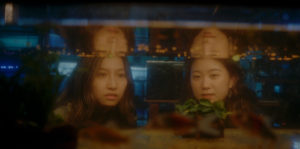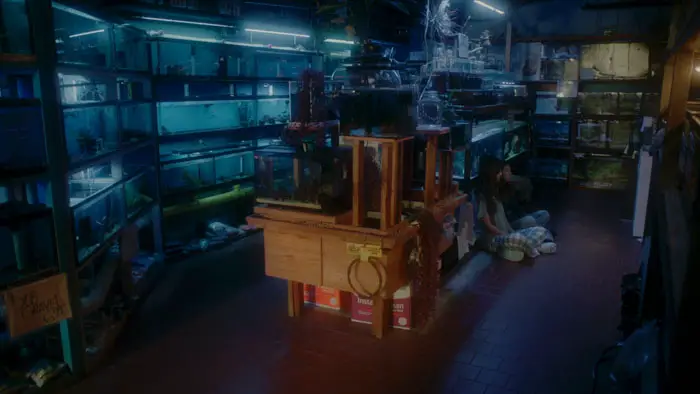
In her film, The Damp Season, Olivia Huilin Gao explores the complicated world of parents and children. Shuyan, a second-generation Chinese American teenager, receives an unexpected phone call from her grandmother in China. The call prompts Shuyan’s journey to uncover the truth about her family’s past — a history she has never been told. As she explores her roots and the reasons behind her mother’s immigration, Shuyan finds herself drawn into a deeper understanding of her complicated mother’s history.
It’s here that The Damp Season takes a fantastical turn as Shuyan begins to form a friendship with a younger, imagined version of her mother — a teenage girl newly arrived in America. Through this relationship, Shuyan confronts the complex emotions surrounding their family’s immigrant experience.

Screenshot
“…a friendship with a younger, imagined version of her mother…”
The Damp Season is a heartfelt story of how we got here. For Shuyan, her family’s past has been a mystery. As a child of immigrants myself, the events that led my grandparents to come to the U.S. are sketchy at best. It’s all a different story, no matter who you ask.
Writer/director Gao’s story is very similar. It will take a bit of work to establish Shuyan’s relationship with her teenage mother, but what shines through is Lena Ji’s empathetic performance, which becomes the emotional foundation for Shuyan’s mother’s arduous journey. Gao brings a distinct artistic vision to the way the story is told. Each frame is unique and quite beautiful to behold.
The Damp Season tenderly reminds us that uncovering the past isn’t about digging up pain—it’s about piecing together identity. Olivia Huilin Gao invites us into a poetic, emotional puzzle where generational trauma meets magical realism. It’s a quiet revelation wrapped in beautiful frames and rooted in the truth that sometimes healing means talking to one’s alter ego—particularly when it’s your teenage mom.

"…poetic, emotional puzzle where generational trauma meets magical realism."
